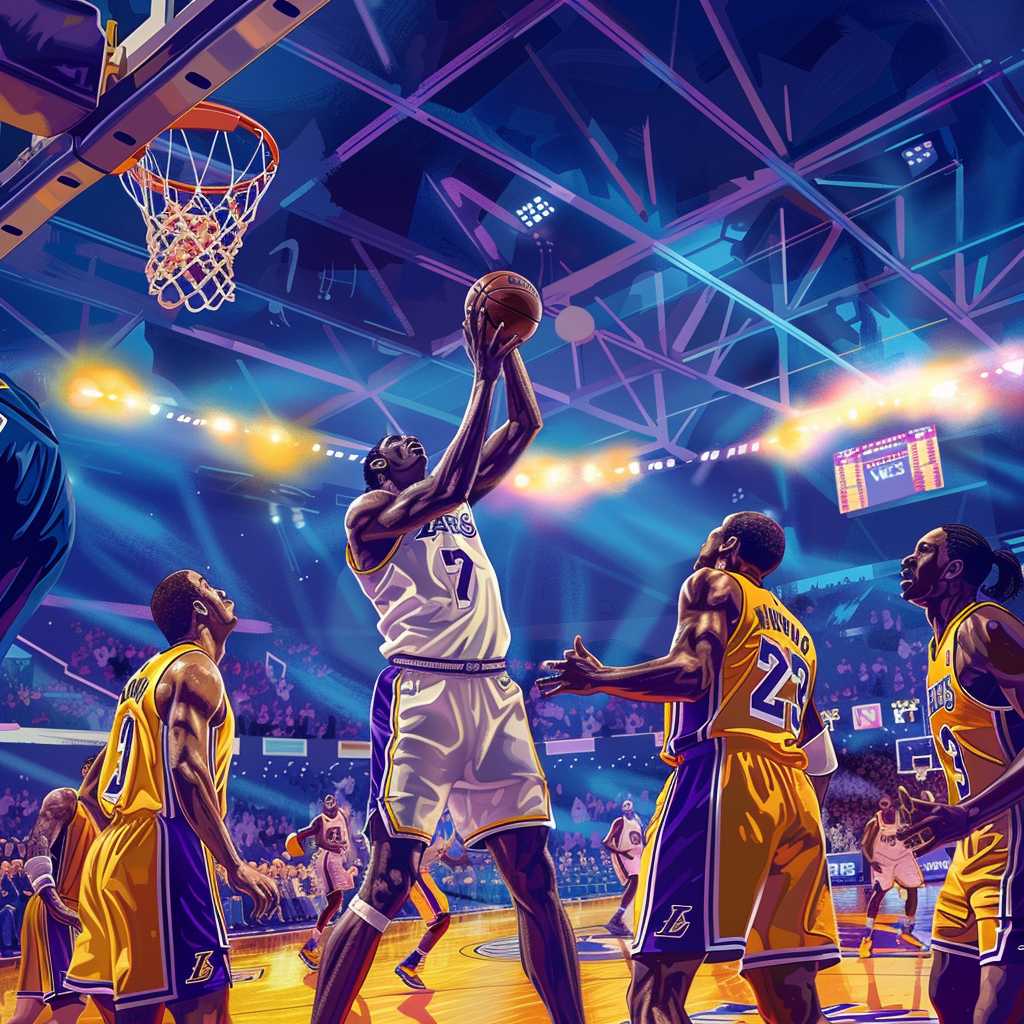## Historic Rivalry: Sacramento Kings vs Los Angeles Lakers
The Sacramento Kings and Los Angeles Lakers have engaged in breathtaking basketball contests over many years, producing an intriguing rivalry filled with memorable moments. This article delves into the history of their matchups, the rivalry’s peak, its impact on fans and the NBA, significant players involved, and how this rivalry has evolved over time.
Origins of the Rivalry
Sacramento Kings and Los Angeles Lakers are two NBA franchises with vastly different histories. The Lakers, one of the most storied franchises in NBA history, have a collection of championships and Hall of Fame players to their name. In contrast, the Sacramento Kings have a more modest history, with periods of success and struggle. Despite their different paths, these two teams have developed a spirited rivalry mostly because they are situated in the same state, California. This proximity has led many Kings fans to view matches against the traditionally stronger Lakers as a measuring stick for success.
The early 2000s were particularly intense as both teams were fighting for dominance in the Pacific Division of the Western Conference. Their matchups were highly anticipated and often proved to be headline-grabbing encounters.
The Peak of the Rivalry: Early 2000s
The rivalry reached a zenith during the early 2000s. During this period, both teams were powerhouses in the Western Conference. The 2002 Western Conference Finals exemplify the fervor that this rivalry incited. That series went to seven games, with several contests ending in controversial moments that are still debated by fans and analysts today.
The Kings were perceived by many as a ‘team of destiny’ led by players like Chris Webber, Mike Bibby, Vlade Divac, and Peja Stojakovic. In contrast, the Lakers boasted a star-studded lineup featuring Kobe Bryant and Shaquille O’Neal. They had established celebrity status in the league and were defending champions looking to secure another title.
The series was marred by controversial officiating that led to widespread debate and spawned numerous conspiracy theories. Game 6, in particular, saw the Lakers benefit from what many fans considered to be an unusual number of foul calls in their favor. The Lakers would go on to win the game and later clinch the series in Game 7.
Players Who Shaped the Rivalry
Several individuals stand out as architects of this riveting matchup through time.
–
Kobe Bryant : A Laker for his entire career, Bryant’s fierce competitiveness and performance in critical moments often swung games in the Lakers’ favor.
–
Chris Webber : Webber was instrumental to the Kings both as a leader and as their main scoring option. His matchups against Shaquille O’Neal were crucial encounters that often dictated the outcome of their games.
–
Shaquille O’Neal : His domination in the paint was a pivotal element for the Lakers’ success. His physical style of play often wore down opponents and gave LA an edge under the basket.
–
Mike Bibby : A key figure for Sacramento, Bibby hit some of his biggest shots against the Lakers including a buzzer-beater in Game 5 of the 2002 Western Conference Finals. Recent Encounters and Revival
Recent Encounters and Revival
In recent years, the intensity of this rivalry has waned somewhat due to changes in both teams’ prospects with the Lakers securing another string of titles in 2009 and 2010, while Sacramento struggled to reach their former competitive status.
However, any meeting between these two squads will always hold importance because historical context stays embedded within fan culture it always has potential for revival given favorable matchups and possibility playoff encounters.
Impact on Fans and NBA Culture
This rivalry has a particular impact on fan dynamics particularly those within California it incubates a strong sense of pride.
Additionally, temporary trends within NBA culture are often reflected when these teams meet Celebrities sitting courtside at Staples Center became familiar with these matchups. Debates around officiating during dramatic contests also influenced league-wide discussions about referee accountability.
